Masters' students
Barney Connolly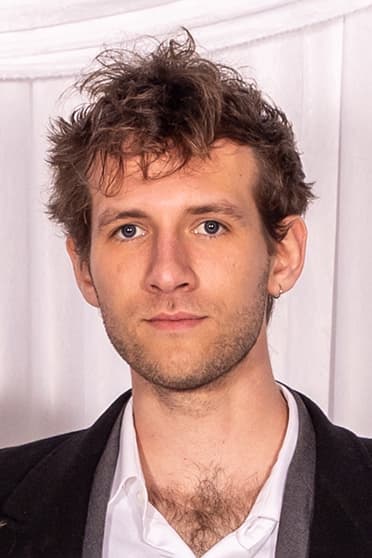
BA in Social Anthropology (Otago), Honours in Social Anthropology (Otago)
Towards an Ethnography of Motorised Wayfarers in Southern Europe
Internet communication technologies and a large number of automobiles on the world's surface are leading to new configurations of work and life such as 'digital nomadism' and 'vanlifers'. By utilising their privileged positions within extant regimes of mobility, 'Motorised Wayfarers', are individuals who for one reason or another engage in full-time or seasonal vehicle dwelling, blending the distinctions between tourism and work. Such lifestyles are glamorised online as 'total freedom for anybody if they are bold enough to try'. However, access to this freedom appear to be anything but equal. In early 2025, by engaging in ~3 months of fieldwork in Southern Europe amongst these communities, and interviewing these 21st century dyads, the author seeks to make a contribution to the anthropological study of privilege, through an analysis of the gendered division of labour within these Motorised Wayfarer communities.
Email barney.connolly@postgrad.otago.ac.nz
Supervisors: Professor Ruth Fitzgerald
PhD students
Pieter Etienne de Villiers
BA(Hons) (Otago)
Walking and Talking: Exploring Social Connection via Chronotopes of Tramping, among Older Adults in the Waikato
The overall aim of my research is to use ethnographic and phenomenological research methods to investigate the ways in which the nexus of place, temporality, and narrative functions to shape experiences of social connection and wellbeing. Specifically, I will investigate this in relation to the practice of communal tramping within Waikato-based tramping groups that are primarily made up of older adults. A key focus of the research will be the role of the environment, the social aspect of the activity (including practices of talking storytelling while walking) and the life-stage of the participants. Attention will be given to how each of these aspects is tied into wider experiences of connectedness to place and history, as well as to other individuals. To extend this, an anthropological lens will also assist me to pay attention to the role of the cultural histories of the Waikato, specifically, the cultural values and ontologies of the participants, how these shape their relationship to the local and national landscape, and to non-present others, as other key parts of the experience of connectedness and wellbeing through tramping.
Email devet032@student.otago.ac.nz
Supervisors: Dr Susan Wardell and Associate Professor Christina Ergler (Geography)
Sian E Griffiths
A theory of situated embodiment for Occupational Therapists
A grounded theory approach to explore how occupational therapists invoke specific skill sets and particular strategies when they conduct initial interviews and assessments with their clients. Based on interviews with practising occupational therapists in various stages of their careers, the thesis aims to examine how intersubjective client relationships reflect a form of embodied clinical reasoning. Proposed is a new theoretical paradigm to analyse the relationship between occupational therapists and their clients; the "situated self".
Supervisor: Professor Ruth Fitzgerald
Nouran El Hawary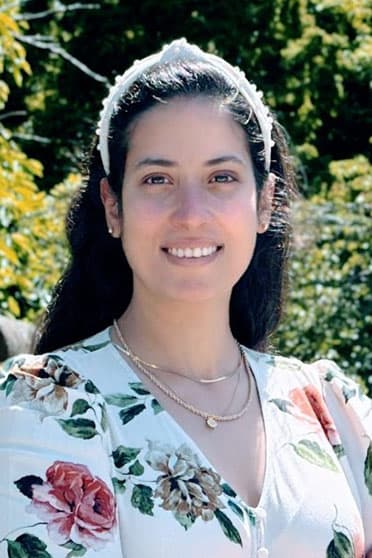
BA/ MA (The American University in Cairo) MA (University of Saint Joseph-Beirut)
Rethinking Refugees through a 'wellbeing' Lens: An Ethnography of Resettlement in Dunedin, New Zealand
The research project employs ‘wellbeing’ as a primary lens to examine how Arabs from a refugee background (re)establish their lives in Dunedin, a city designated as a resettlement location in 2016. In this context, ‘wellbeing’ seeks to move beyond the duality of ‘trauma-resilience’ that predominates discourses and cultural representations about refugees in humanitarian communications and world media alike. While ‘trauma’ depicts refugees as passive victims in need of saving, ‘resilience’ fails to account for the structural barriers they endure in their survival. Conversely, ‘wellbeing’ aims to rehumanise refugees by highlighting what they prioritise as important and what matters most, despite the inherent dissonances of humanitarian/resettlement interventions. Through ethnographic fieldwork focusing on ‘wellbeing’ as expressed and performed in the everyday lives of Arab refugees, the research project draws on the creativity, life-sustaining techniques, and dignity they are capable of carving out along their displacement journeys.
Email elhno577@student.otago.ac.nz
Supervisors: Dr Hannah Bulloch and Dr Susan Wardell
Yi Li
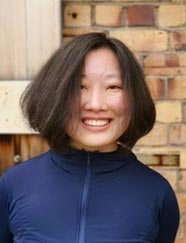 BA(Hons) (Otago)
BA(Hons) (Otago)
Exploring Geographic Happiness: Through an Ethnography of Migrants Engaged with Eco-creative Practices in Iceland and New Zealand
Establishing the ethnographic investigation of migrant adaptation, happiness and connection to place in New Zealand and Iceland at a time of uncertainty, the project aims to gain an insightful enquiry into migrant eco-creators engaged with ecological-artistic or eco-lifestyle/space design. The study explores how long-term migrants in two island countries negotiate a sense of emplacement, social connectedness, and wellbeing through eco-creative practices. Via both sensuous geographies and the anthropological lens, the research combined soundscape, the representation of landscape and visual ethnography to conduct multi-media, multi-sited, and multi-sensory methods to capture and analyse the eco-creative practitioners' enveloping experiences and Spatio-temporal events. The project will assess the correlation between spatial transformations, the human-natural relationship, and the land-body intimacy, as the embodiment of migrants' pursuit of wellbeing and sustainability.
This research is funded by a University of Otago Doctoral Scholarship.
Email li.yi@postgrad.otago.ac.nz
Supervisors: Dr Susan Wardell and Associate Professor Christina Ergler (Geography)
Duke McLeod
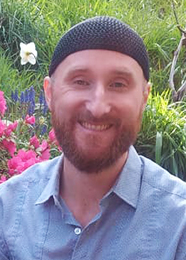 BA; PGDip (Otago)
BA; PGDip (Otago)
Enjoining the Good, forbidding the Evil: About Vegan Muslims and Islamic Veganism
This interdisciplinary mixed methods project explores relationships between religiosity/spirituality and lifestyle choices. In particular, this project draws from anthropological and sociological methods to investigate and illustrate Muslim attitudes towards veganism. Leading questions of this project are: 1) What are Muslim conceptions of veganism, and how do they differ between vegan and non-vegan Muslims? 2) What are Muslim perceptions of a vegan lifestyle, and how do they differ between vegan and non-vegan Muslims? 3) How does effective vegan advocacy work look like in Muslim contexts? The overarching aim is to create a narrative of Muslims' journeys into veganism, including their struggles and solutions, and thus create information that may be useful for vegan advocacy work in Muslim contexts.
This project was inspired by the researcher's own experiences as a vegan on the spiritual path of the Sufis and is supported by a University of Otago Doctoral Scholarship.
Email duke.mcleod@postgrad.otago.ac.nz
Supervisors: Associate Professor Greg Rawlings, Dr Susan Wardell, Dr Bryndle Hohmann-Marriott (Sociology)
James Olliver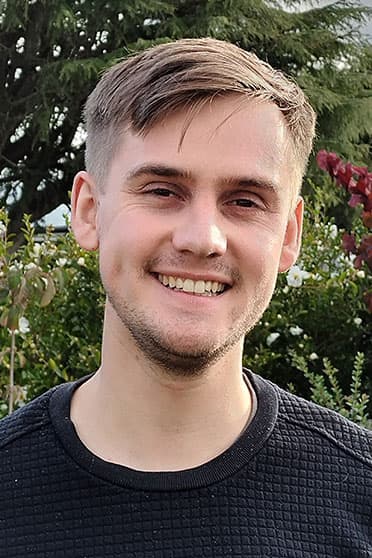
BA(Hons), BSc (Otago)
Exploring the socio-political contexts of the circulation of anti-vaccination or vaccine-hesitant knowledges by and among digital communities in contemporary Aotearoa New Zealand.
This project focuses on the circulation of knowledge within vaccine-hesitant digital communities within Aotearoa New Zealand, with an aim to gain an insight into how knowledge is produced and then reproduced by these individuals and organisations. The anthropological lens of this project allows for a different perspective on misinformation by exploring the nature of interactions instead of focusing on the validity of information shared. By taking a relativistic approach to misinformation, I aim to highlight the manner in which individuals engage with these forms of information, by exploring the role of faith, belief, and authority in creating a sense of belonging within these communities. Through this exploration I hope for an insight into how we can begin to reconnect over the many societal fractures caused by the growth of misinformation and experiences of a global pandemic.
This research is funded by a University of Otago Doctoral Scholarship.
Email james.olliver@postgrad.otago.ac.nz
Supervisors: Professor Ruth Fitzgerald and Dr Susan Wardell
Susan Wason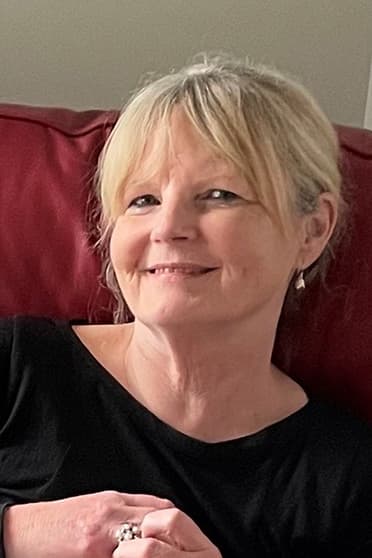
MA (Distinction) (Otago); BA (Canterbury); DipSocWk (Distinction) (Canterbury); GDNPM (Unitec)
The Retrospective Experiences of Adult Children who have Grown Up with Parental Mental Health Illness
This research focuses on the experiences of adult children who have grown up with parental mental health distress or illness. In Aotearoa New Zealand there is little published research detailing children’s lived experience in this important area. This qualitative research project seeks to change this narrative. The aims of this research are to increase knowledge and awareness of the lived experiences of this largely invisible group and to provide a resource to inform future service and policy provision. Semi-structured interviews are being utilised as the data collection method, while thematic analysis will be used to analyse the participant narratives.
Email susan.wason@otago.ac.nz
Supervisors: Professor Ruth Fitzgerald (primary), Associate Professor Nicola Atwool (Social and Community Work), and Associate Professor Anaru Eketone (Social and Community Work)
Julia Watkin
 BA, MEd (VUW Wellington)
BA, MEd (VUW Wellington)
Restorying mental health with young people in Aotearoa New Zealand
When it comes to the story of youth mental health in Aotearoa, the media use words like struggles, risk, wait times, distress, crisis. This research wants to rewrite the story – to restory youth mental health. It is a patchwork of narrative, ethnography and grounded theory, and it started out by asking young people what mental health means to them and how are they learning about it? That led to discussions about how mental health should be defined and what education and services young people want to support their well-being. This research is funded by a University of Otago Doctoral Scholarship and has also been assisted by a U3A Otago 150th Postgraduate Award (2023).
Email julia.watkin@postgrad.otago.ac.nz
Supervisors: Dr Susan Wardell, Dr Matthew Jenkins (Department of Psychological Medicine)
Anna Williams
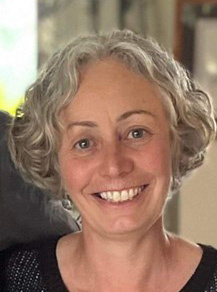 BTech, MPhil, PGDip (Massey University)
BTech, MPhil, PGDip (Massey University)
Pākehā journeys of wellbeing – a study in identity, belonging and connection in contemporary Aotearoa New Zealand
Important shifts towards reflecting bicultural nationhood, involving changes in policies, public and private life are occurring in Aotearoa New Zealand. Some New Zealanders are experiencing this contemporary moment as an unsettling time. This research explores experiences of cultural identity and belonging for British descendents living in Otago and Southland, considering how that supports their mental wellbeing and connections with others. The research will consider the relevance and application of different models of health and wellbeing – including the Māori wellbeing framework, Te Whare Tapa Whā – in the lifeworlds of the participants, and work towards developing expanded understandings of the role of cultural identity, in the life and wellbeing, of settler populations.
Email anna.williams@postgrad.otago.ac.nz
Supervisors: Dr Susan Wardell and Dr Richard Egan
Rayhaan Yusuf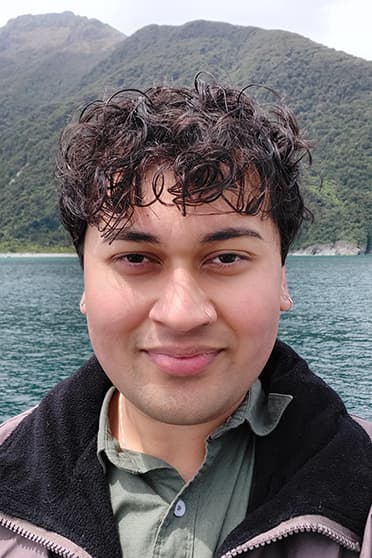
BA(Hons) (Otago)
The Immigrant and the Indigenous: Asian solidarity towards Tino Rangatiratanga in Aotearoa New Zealand
Te Tiriti o Waitangi is our first immigration document, allowing Asian immigrants to settle and call Aotearoa New Zealand home. With ongoing colonisation, a group of Asian activists called Asians Supporting Tino Rangatiratanga (ASTR) demonstrate pan-continental solidarity towards upholding tino rangatiratanga (Māori self-determination). This research aims to understand what it means to be of Asian heritage and support indigenous rights of tino rangatiratanga in settler-colonial Aotearoa New Zealand. Through digital and physical ethnography, I apply an anthropological lens to understand a unique dynamic of political relationships between the nation’s largest immigrant population, and its Indigenous people. A critical reading of care and hope also reveals much about this unique relationship of activism. This research affirms a disruption of the dichotomy that Te Tiriti is discussion between Pākehā and Māori only.
This research is supported by the University of Otago Master's Research Scholarship..
Email: rayhaan.yusuf@postgrad.otago.ac.nz
Supervisor: Professor Ruth Fitzgerald